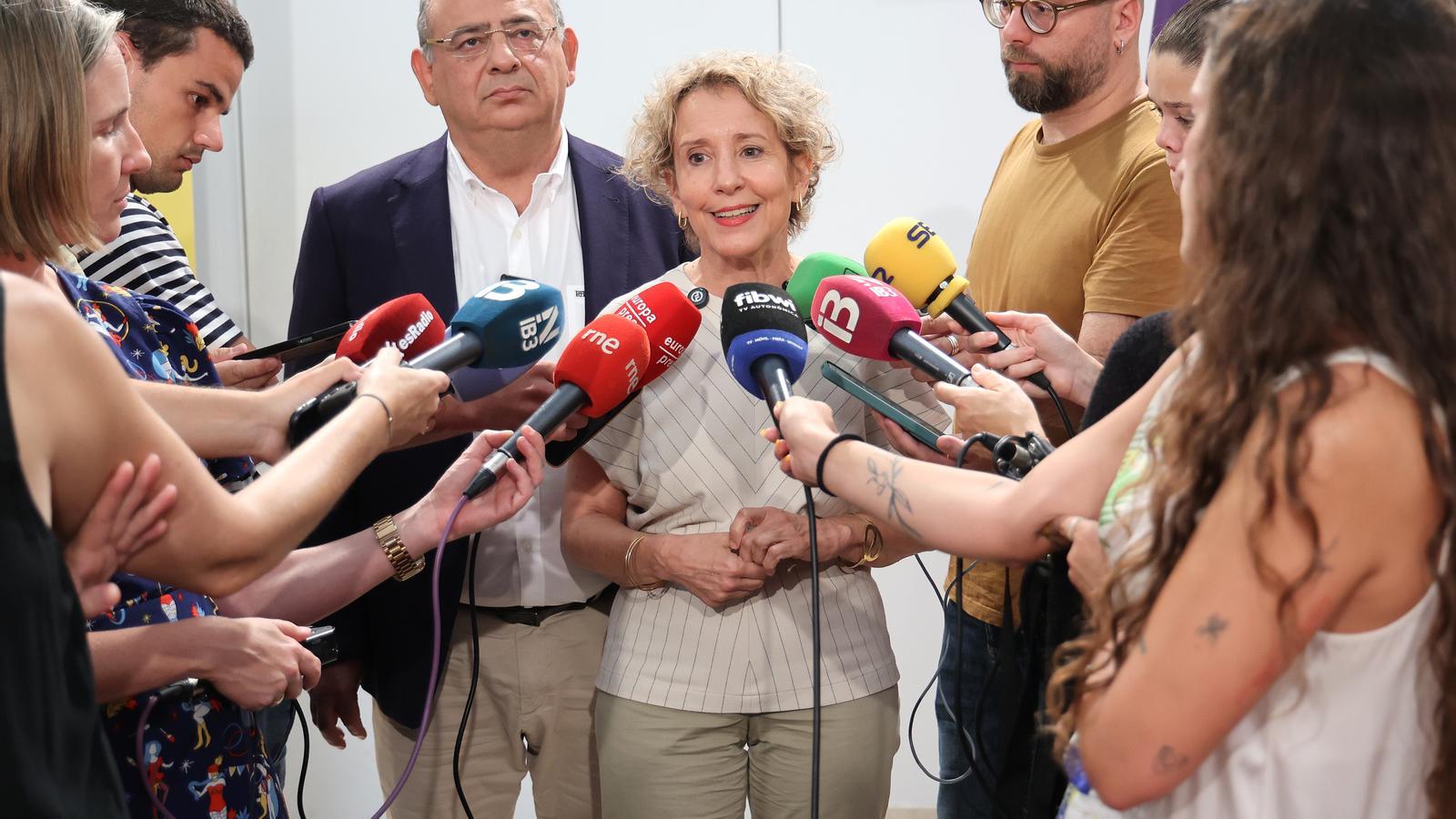Aina Calvo on the government's refusal to accept migrant minors: "It must assume its responsibilities."
The Spanish government is concerned about the profile of the new Director General of Immigration and Development Cooperation, Manuel Pavón.


In front of the government's refusal to accept migrant minors Asylum seekers who are now in the Canary Islands, the Secretary of State for Security, Aina Calvo, has emphasized that the responsibilities of the administrations are "very defined" in the frameworks of their powers and has warned that "whoever decides to ignore them will have to assume their responsibilities."
For his part, the Spanish government delegate in the Balearic Islands, Alfonso Rodríguez, considered that the Prohens government's refusal to care for these minors "is the result of a budgetary pact with Vox," and believed that it does not seem "the most appropriate." In this sense, he criticized the Popular Party's accusations that the PSOE (Spanish Socialist Workers' Party) uses migration "as a bargaining chip," because, he asserted, "it was the PP that did it."
Rodríguez attacked the government for "refusing to attend the forums where they discuss how the country can work together to resolve the humanitarian crisis." In the same vein, he considered that "Mrs. Prohens, as a humanitarian and in an attempt to combat xenophobic discourse that criminalizes migration, should understand that she must collaborate with the situation in the Canary Islands, Ceuta, and Melilla."
He also called on Prohens to be "aware that what she is now denying in the Canary Islands she may want to claim for the Balearic Islands in a few months, since we may enter this migratory contingency of real and material inability to continue taking in minors and we need the help of the rest of the communities."
A profile that "worries" the Spanish government
Unlike Aina Calvo, the Spanish government delegate has spoken out about the appointment of the deputy inspector of the National Police, Manuel Pavón, as the new Director General of Immigration and Development Cooperation. Rodríguez considered that Pavón's connection between migration and citizen insecurity "speaks volumes, but not very well" about him. Along the same lines, he emphasized that "regardless of whether he is a national police officer," what "worries" Rodríguez is Pavón's "profile."
He also lamented that regional powers over migration have passed from the Ministry of Social Affairs to the Ministry of the Presidency. In his opinion, this move seeks to enable the government to make "political criticism of the migration situation."
For his part, Calvo declined to assess the profiles that each regional administration might determine. "Each one appoints the teams they want," he said. However, he assured that he will be "very attentive" to the framework of powers, considering that the autonomous communities have "a daunting task in working on the integration of migrants, the coexistence of people who come from outside with people from the host community, and in interacting with migrant associations."
In this regard, he took the opportunity to extend his hand for "institutional collaboration and cooperation" between administrations, which, he considered, is "the best recipe for facing the migration challenge." Along the same lines, he emphasized that "when cooperation does not exist and there is a confrontation, those who lose are the citizens of our country and those who come from outside."
170% increase in the migratory route
The Secretary of State for Security, Aina Calvo, and the government delegate in the Balearic Islands, Alfonso Rodríguez, have acknowledged a year-on-year "increase" of nearly 170% in the number of migrant arrivals via the route between Algeria and the Balearic Islands. However, they declined to define this route as "consolidated."
Calvo highlighted the decline in the number of migrant arrivals to the Canary Islands recorded in recent months and acknowledged that, in the case of the Balearic Islands, there has been an "increase." "Migratory flows are dynamic, and it is true that we have an increase; the data speak for themselves," she emphasized. Since the beginning of the year, according to data provided by the Government Delegation and compiled by Europa Press, nearly 3,280 migrants have arrived in the archipelago.
This, Rodríguez explained, represents an increase of almost 170% compared to the period between January and July 2024. "This migratory flow to the Balearic Islands has been increasing for years, just as it increased in the Spanish Levant years ago or in recent years, it's absurd," the government delegate pointed out.
